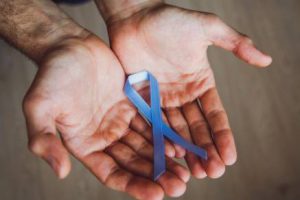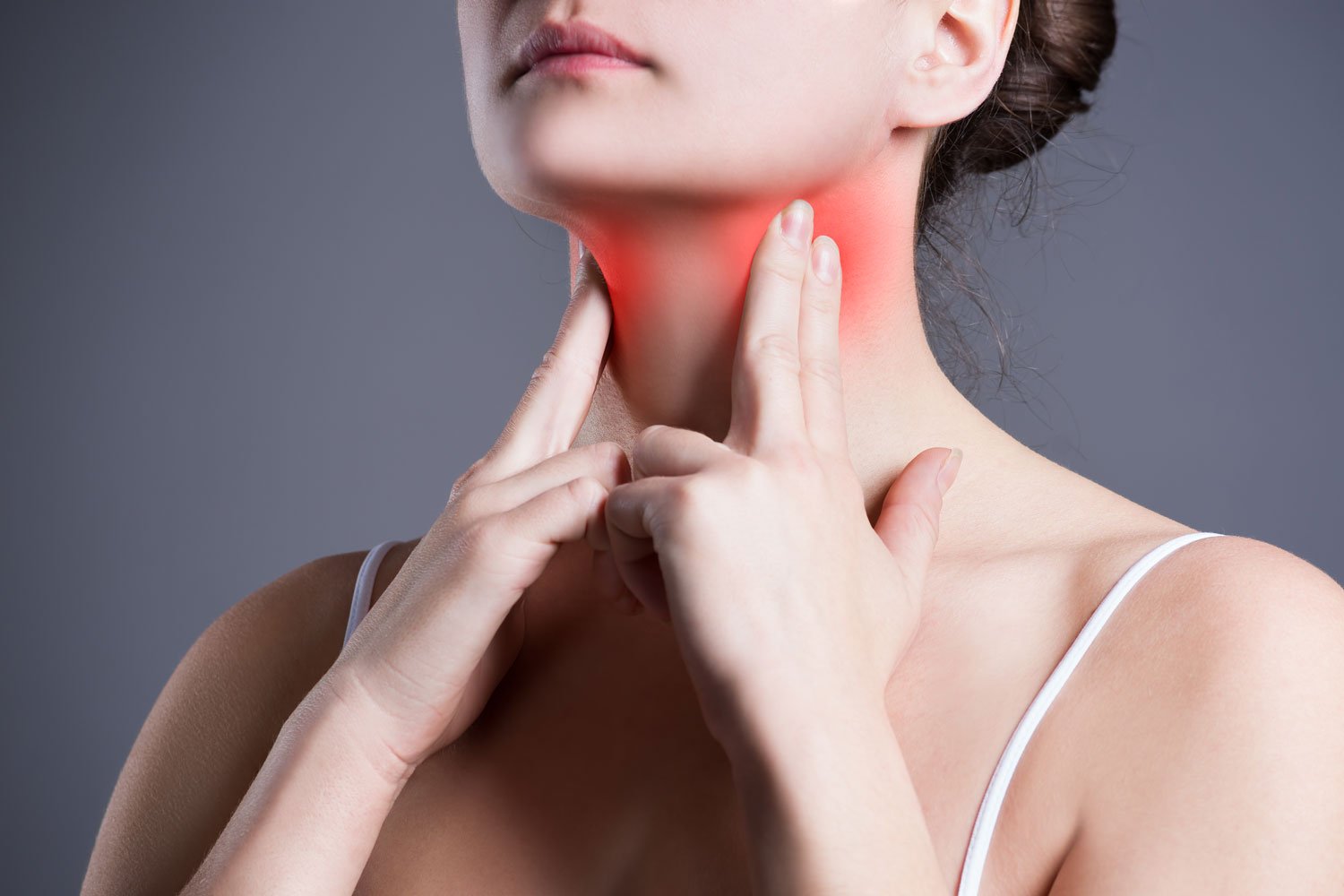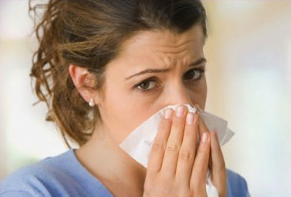Digestive Issues
Digestive Issues
Are you fed up with suffering from digestive issues that cause you to feel unwell?
Do you suffer from symptoms such bloating, constipation, diarrhoea, flatulence, reflux, indigestion, heartburn, abdominal cramping, which can lead to tiredness, mood swings and nutritional deficiencies?
Linda Cotone can use a wide variety of herbal medicines, supplements, vitamins, minerals, dietary and lifestyle changes to treat a whole range of disorders to improve your overall wellbeing and assist in eliminating those issues which have been bothering you for years.
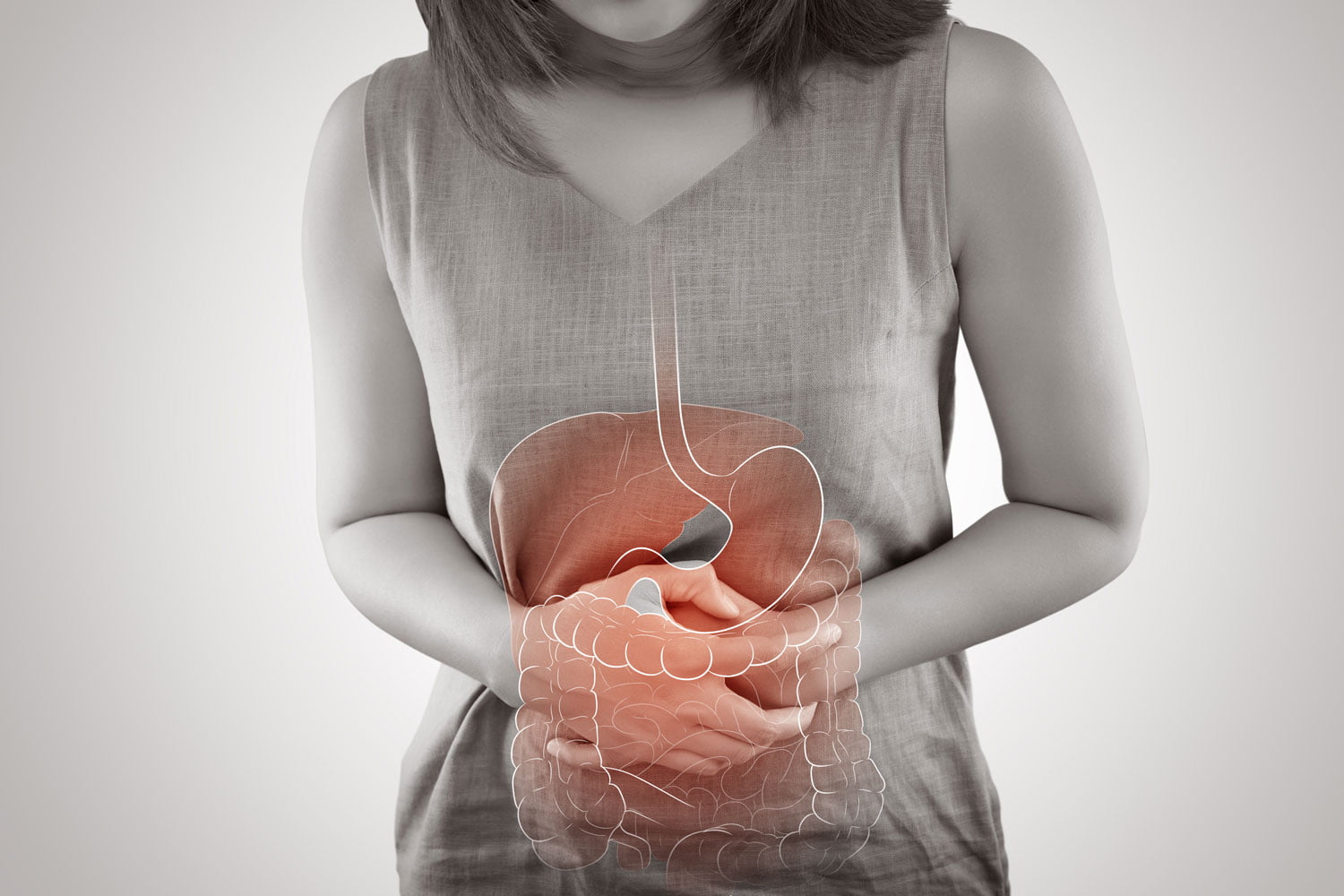
Natural Treatment For Irritable Bowel Syndrome (IBS)
Irritable bowel syndrome (IBS) is a common and debilitating condition which significantly affects the patient’s quality of life. IBS presents with a cluster of gut symptoms, with the cardinal symptom being abdominal pain with either constipation and/or diarrhoea.
IBS is divided into subcategories based on the predominate symptom
- IBS-C (constipated)
- IBS-D (diarrhoea)
- IBS-M (Mixed IBS) Loose or watery stools
Signs And Symptoms
- Abnormal stool frequency (“abnormal” may be defined as greater than 3 bowel movements per day and less than 3 bowel movements per week)
- Abnormal stool form (lumpy/hard or loose/watery stool)
- Abnormal stool passage (straining, urgency, or feeling of incomplete evacuation)
- Passage of mucous
- Bloating or feeling of abdominal distension.
- Straining during a bowel movement
Urgency (having to rush to have a bowel movement) - Feeling of incomplete bowel movement
- Abdominal pain and/or discomfort relived by defaecating
- Changes in bowel habits
- Diarrhoea or constipation, or both alternately
- Need for bowel movement immediately on waking or after eating
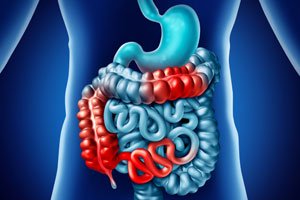
How Can We Help?
Linda Cotone, Naturopath specialises in natural treatment for IBS. Linda can help treat the symptoms of IBS by discovering the underlying causes, through the use of various screening tools and taking a detailed case history. She will use a combination of herbal medicine, nutritional supplements, dietary and lifestyle changes that will help heal your system and help restore balance.
Inflammatory Bowel Disease (Crohn’S Disease & Ulcerative Colitis)
Inflammatory bowel diseases (IBD) are non-specific, chronic inflammatory diseases of the gastro intestinal tract. (GIT). Inflammation may affect any part of the GIT from the mouth to the anus. Crohn’s disease and ulcerative colitis are the most common inflammatory bowel disorders.
Crohn’s disease is chronic inflammation involving all layers of the intestinal wall and any part of the gastrointestinal tract. The disease often presents with a pattern of intermittent remittance and relapses. Nutritional deficiencies due to malabsorption are common and developmental retardation may result in those who develop this disorder during childhood.
Ulcerative colitis is a chronic, nonspecific inflammatory bowel disease involving the mucosa and submucosa of the colon. It usually includes the rectum and is characterised by uniform and continuous ulceration, bloody diarrhoea and rectal bleeding. Recurrent inflammation may eventually lead to shortening of the colon, and with long-standing UC, the surface epithelium may show dysplastic changes. Like Crohn’s disease, ulcerative colitis often presents with a pattern of intermittent remittance and relapses.
Commom Signs Of IBD Include
- Diarrhoea with or without gross or occult blood (occurs in the majority of patients) Cancel
- Abdominal pain (often after eating and relieved with defaecation)
- Abdominal distension, tenderness or pain, especially pain in the right lower quadrant
- Fatigue, anaemia
- Poor appetite, weight loss, malnutrition
- Steatorrhoea (fatty stool)
- Nausea and vomiting
- Anal-rectal complications such as fistulae, fissures, or perirectal abscesses
- Rectal bleeding
- High fever
- Tachycardia
- Rectal tenesmus (sense of needing to evacuate, even when bowel is empty)
- Constipation (this may occur instead of diarrhoea if rectal involvement is predominant)
- Arthralgia – generalised joint pain
Factors that Can Contribute to the Incidence of IBD Include the Following
- Food and/or chemical sensitivities or allergies
- Intestinal infections, dysbiosis and/or Leaky Gut Syndrome
- Family history of IBD
- History of chronic viral and/or bacterial infection
- Frequent dieting
- High stress or poor stress tolerance
- Highly refined sugar diet
- Use of medications which reduce normal intestinal flora (e.g., antibiotics)
- Living in an urban, industrialised environment
- Cigarette smoking
- Dietary patterns – increased sugar consumption, decreased fruit and vegetable consumption and increased trans-fatty acid consumption increases the risk for IBD
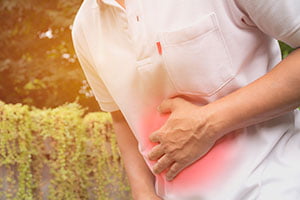
How Can Natural Medicine Help
Linda Cotone, Naturopath can use natural medicine to help relieve the symptoms of IBD through dietary advice as well as the use of herbal medicine and nutritional supplements.
Small Intestinal Bacterial Overgrowth (SIBO)
Small intestinal bacterial overgrowth (SIBO) refers to a condition in which abnormally large numbers of bacteria are present in the small intestine and the types of bacteria in the small intestine more closely resemble the bacteria of the colon. The types of bacteria within the small intestine are different than the types of bacteria within the colon. Normally, bacteria are moved out of the small bowel into the large bowel via peristalsis and the ileocecal valve prevents movement of bacteria from the colon back into the small intestine. However, disruptions in intestinal motility or physical disturbances inhibit this natural defensive pattern and bacteria begin to accumulate in the small intestine.
SIBO is associated with irritable bowel syndrome and chronic fatigue syndrome. Bacterial overgrowth may break down bile acids, necessary for absorption of fats, thus reducing absorption of fats and fat-soluble vitamins A, D and E. In severe cases, bacteria may damage small intestinal wall thus impairing carbohydrate and protein absorption resulting in malnutrition. Anemia may also develop, when bacteria interfere with B12 reabsorption.
Common Signs and Symptoms of SIBO
- Nausea
- Flatulence
- Abdominal bloating/ distension
- Diarrhoea
- Abdominal cramping, worse after meals
- Weight loss
- Vomiting
- Malnutrition
- Anaemia
- B12 deficiency
- Nutritional deficiencies
- Fatigue
- Steatorrhea
Causes/Risk Factors of SIBO
- Hypochlorhydria ( low stomach acid )
- Disordered motility of small bowel
- Pancreatitis
- Coeliac disease
- Scleroderma
- Diabetes mellitus
- Immunosuppressant medications
- Removal of ileo- caecal valve
- Proton pump inhibitors
- Neurological conditions
How Can Natural Medicine Help
Linda Cotone, the Naturopath at Melbourne Naturopathy can provide treatment for SIBO through the use of natural antimicrobial herbs to remove the bacteria from the small intestine, therefore re establishing the small intestine roles of absorbing nutrients and coordinating the large bowel to function smoothly.
Linda will also use various other herbal remedies, natural supplements and dietary recommendations to treat the symptoms of SIBO, restore the gut, support digestion, optimise detoxification, and help to maintain long term healthy gut microbiome, mucosal integrity and motility.
Reflux (Gord) (Heartburn) & Functional Dyspepsia (Indigestion) & Gastroparisis
Gastro-oesophageal Reflux Disease (GORD) or acid reflux, is a chronic condition in which the content of the stomach regurgitates (backs up or refluxes) into the oesophagus causing inflammation and damage to the lining of the oesophagus.
Functional dyspepsia( FD ) and Gastroparesis ( GP )are the two most common sensorimotor disorders of the upper GI tract, with shared symptoms of upper abdominal pain, postprandial fullness, early satiety and nausea.
Classifying GORD, FD and GP is confusing as the symptoms and treatments are frequently the same.
Signs And Symptoms
Common symptoms of Functional Dyspepsia and Gastroparesis
- Upper abdominal pain
- Postprandial fullness and pressure
- Early satiety
- Nausea, vomiting
- Weight loss
Most-common symptoms of GORD
- Heartburn
- Regurgitation Dysphagia (Trouble swallowing)
Less-common symptoms of GORD
- Pain with swallowing
- Excessive salivation (this is common during heartburn, as saliva is generally slightly basic and is the body’s natural response to heartburn, acting similarly to an antacid)
- Nausea
- Chest pain
Factors That Contribute To Upper GI Complaints Include
- Hiatus hernia, due to mechanical and motility problems.
- Obesity – creating pressure under the diaphragm
- Common dietary irritants – Fatty and fried foods, chocolate, garlic and onions, caffeinated drinks, acidic foods such as citrus fruits and tomatoes, spicy foods, mint flavourings
- Gluten sensitivity
- Stress or mood disorders
- Helicobacter pylori infection
- Poor eating habits – Excessive carbohydrates, eating too large meals, eating directly before bedtime
- Use of alcohol or cigarettes
- Poor posture (slouching)
- Congenital weakness of lower oesophageal sphincter
- Hypercalcaemia, which can increase gastrin production, leading to hyperacidity.
- Diabetes
- Gastroparesis: (delayed gastric emptying of a solid food meal with no obstruction)
Make An Appointment Today
Linda Cotone, Naturopath can provide relief from the discomfort and pain of reflux and indigestion through dietary and lifestyle changes and the use of herbal medicines and nutritional supplements. She will also treat the underlying causes, to help restore balance. Don’t put up with symptoms any longer.
Constipation Treatment
Constipation is a condition in which a person has difficult or infrequent passage of faeces. Constipation may be a symptom of underlying pathology or an ongoing problem in itself, lasting days, months, or years. Constipation may occur at any age, and most people will experience constipation sometime in life, but it is more frequent in infancy and old age.
Signs And Symptoms
- Infrequent, difficult passage of stools (less than three times a week)
- Sudden and significant decrease in frequency of bowel movements
- Stools harder than normal, possibly impacted
- Sensation of incomplete bowel emptying
- Bloated sensation
What Are The Causes Of Constipation?
- Decrease in exercise or activity, often occurring with illness and travel
- Dietary changes
- Use of many medications, such as diuretics and some antidepressants
- Low fibre diet
- Stress
- Hypothyroidism
- Anorectal fissures or thrombosed haemorrhoids
- Strictures
- Tumours
- Pregnancy
How Can Natural Medicine Help?
Linda the Naturopath, provides treatment for constipation through the use of a wide range of natural remedies, dietary and lifestyle changes. The treatment will provide symptomatic relief from constipation, as well as treating the underlying cause of the problem, to restore harmony and balance.
Natural Treatment For Candida Infection (Candidiasis)
Candidiasis is a general term for the over growth of yeast and fungal infections, most commonly caused by several species of Candida, the most predominant being Candida albicans. Candida is a common commensal (nonpathogenic) organism in the human microbiome that is found in the gut, genitals, skin, throat and mouth. Candida overgrowth occurs and problems arise when the ratio of friendly bacteria to harmful microorganism is disturbed, leading to many disease states and health issues varying from digestive issues to depression.
Causes Of Candida Overgrowth
- Eating a diet high in refined carbohydrates and sugar
- Consuming a lot of alcohol
- Taking oral contraceptives
- Stress
- Antibiotics (they decrease the amount of good bacteria)
- Weak immune system
- Uncontrolled diabetes
- Pregnancy
- Hormonal imbalance near menstrual cycle
- Lack of sleep
Symptoms Of Candida Overgrowth
There are many symptoms of Candida overgrowth, which can affect every organ of the body. Some of the symptoms include
- Chronic fatigue
- Brain fog
- Digestive issues, such as bloating, constipation, diarrhoea, nausea,
- Vagina infections,
- Urinary tract infection
- Vaginal & rectal itch
- Oral thrush
- Sinus infections
- Food allergies/intolerances
- Fungal infections on the skin and nails
- A weak immune system
- Joint pain
- Low mood/ depression
- Irritability, anxiety, mood swings
- Headache
- Fatigue
- Dizziness
- Strong sugar and refined carbohydrate cravings
- Sweating and fever
- Skin breakouts
- Hormonal imbalances
- Fertility issues
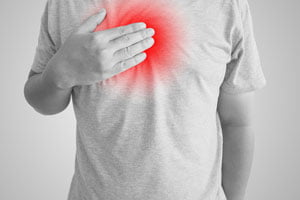
How Can Natural Medicine Help With Candida Overgrowth?
Linda the Naturopath at Melbourne Naturopathy can provide a natural treatment for Candida overgrowth through the use of a variety of natural medicines, nutritional supplements and dietary changes. Treatment will depend on what parts of the body have been affected. She will provide an individualized treatment plan to treat the symptoms, address underlying causes and restore harmony and balance to the body.
Coeliac Disease & Gluten Sensitivity
Coeliac disease (CD) is an autoimmune disease triggered by an abnormal immune response to gluten. Gliadin, one of the two proteins which form gluten, has been found to be the toxic component in coeliac disease which initiates the immune activation. The inflammatory damage as a result primarily affects the small intestine. Systemic manifestations of coeliac disease include fatigue, weight loss, diarrhoea, anaemia, osteoporosis and depression.
Non-coeliac gluten sensitivity (NCGS) is a condition that is neither autoimmune nor allergic, yet leads to subjective symptoms similar to those seen in coeliac disease when gluten is consumed. The condition is characterised by negative antibodies (except, perhaps to gliadin) and normal intestinal mucosa. The cardinal sign is the clinical improvement of symptoms on a gluten-free diet in the absence of antibodies and intestinal mucosal abnormalities.
Wheat allergy is a less common condition than CD and NCGS. It is characterised by an IgE-mediated reaction to gliadins, particularly ω-5 gliadin. Unlike CD, patients with wheat allergy usually do not need to restrict other gluten-containing grains, such as rye, barley, and oats from their diet. The symptoms of wheat allergy are typical of those of an IgE-mediated reaction. Symptom onset after consumption is much more immediate than CD and NCGS, often occurring within minutes of consumption, with acute swelling of the face, skin, respiratory and gastrointestinal tract.
Signs And Symptoms
A cardinal sign of Coeliac Disease & gluten sensitivity is improvements on gluten withdrawal.
Coeliac Disease
- Fatigue
- Weight loss
- Diarrhoea
- Anaemia
- Osteoporosis
- Depression
- Dermatitis
- Neuropathy
Non-Coeliac Gluten Sensitivity (NCGS)
- Abdominal pain/ Irritable Bowel Syndrome (IBS) symptoms (including bloating and flatulence)
- Eczema and/or rash
- Headache & “Foggy mind”
- Fatigue and lethargy
- Depression
- Attention-deficit / hyperactivity disorder (ADHD)
- Recurrent oral ulceration
- Anaemia
- Musculoskeletal: Numbness legs/arms/fingers, Joint pain
- History of food allergy in infancy
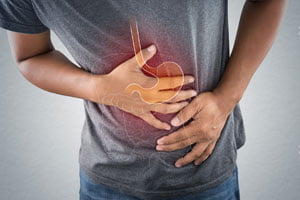
Other Services & Treatments
Call Today To Book Your Appointment
We are located at 352 St Georges Road, Thornbury VIC 3071, servicing Northcote, Preston and the surrounding Northern Suburbs.







